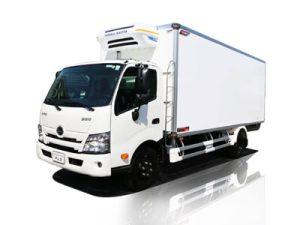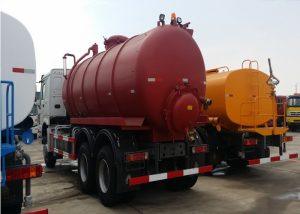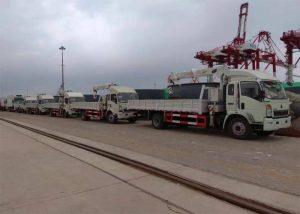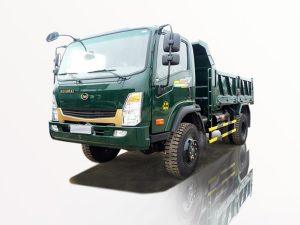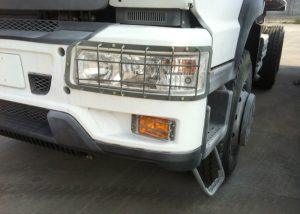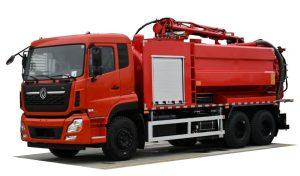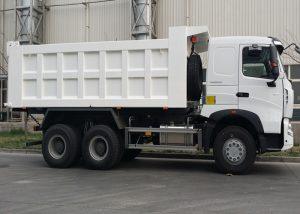Monday to Saturday - 8:00 -17:30
Lift Truck for Sale: Your Ultimate Guide to Choosing the Right Forklift
When it comes to material handling and logistics, lift trucks are indispensable tools for businesses. Whether you’re operating a small warehouse or a large distribution center, finding the right lift truck for sale can greatly enhance your operational efficiency. In this article, we will delve into the various types of lift trucks, important factors to consider when purchasing one, and how to ensure you make an informed decision. We’ll also touch on some practical examples and tips to help you along the way.
Understanding Lift Trucks
Lift trucks, also known as forklifts or lift trucks, are powerful vehicles designed for lifting, moving, and stacking materials. They come in various types and configurations suited for different applications. Understanding these types is essential for selecting the right lift truck for your needs.
Types of Lift Trucks
There are several main types of lift trucks available in the market:
1. Electric Forklifts
Electric forklifts are battery-powered and are ideal for indoor use. They are known for being environmentally friendly and quieter compared to their gas-powered counterparts. Electric forklifts come in various capacities and are perfect for tasks that require low emissions.
2. Internal Combustion (IC) Forklifts
IC forklifts run on fuel such as gasoline, propane, or diesel. They are typically used outdoors and are more powerful than electric models, making them suitable for heavy lifting and rough terrain.
3. Narrow Aisle Forklifts
Narrow aisle forklifts are designed for tight spaces, allowing businesses to maximize their storage capacities. They are commonly used in warehouses where aisle widths are limited.
4. Order Pickers
These specialized forklifts are designed for order fulfillment in warehouses. They allow operators to pick items from high shelves and often come with raised platforms for easy access.
5. Pallet Jacks
Pallet jacks are simpler lift trucks designed for moving pallets short distances. They are cost-effective and perfect for smaller warehouses or retail environments.
6. Reach Trucks
Reach trucks are ideal for handling loads in narrow aisles and can reach higher than standard forklifts, making them suitable for high-stacking operations.
Key Factors to Consider When Buying a Lift Truck
Choosing the right lift truck involves careful consideration of several key factors:
1. Load Capacity
Understanding the load capacity you require is crucial. Lift trucks come with weight limits, and it’s essential to select a model that can handle your specific materials. For instance:
| Type of Forklift | Typical Load Capacity |
|---|---|
| Electric Forklifts | 3,000 – 15,000 lbs |
| IC Forklifts | 5,000 – 55,000 lbs |
| Pallet Jacks | 2,500 – 5,500 lbs |
2. Environment of Use
The environment where the lift truck will be used plays a critical role in your selection. If the truck will be used indoors, electric forklift models are suitable due to their zero emissions. Conversely, if outdoor use is needed, consider the durability and fuel options of IC forklifts.
3. Maneuverability
Consider the warehouse layout and how much space you have to maneuver. If you operate in tight spaces, investing in narrow aisle or reach trucks can improve productivity. Ensure any lift truck you choose can easily navigate your operational environment.
4. Safety Features
Safety is paramount when operating heavy machinery. Look for lift trucks equipped with advanced safety features such as:
- Stability systems
- Load management systems
- Operator presence systems
- Warning lights or beepers
5. Maintenance and Reliability
Consider the maintenance requirements and reliability of the lift truck. Some models require more regular servicing than others, impacting your operational efficiency. Research the manufacturer’s reputation for parts availability and service support.
6. Budget Constraints
Establishing a budget is essential when purchasing a lift truck. Determine whether to buy new or used equipment. New forklifts come with warranties and the latest technology, while used models are often more affordable. Weigh the pros and cons carefully based on your budget.
Where to Find Lift Trucks for Sale
Finding the right lift truck for sale involves knowing where to look. Here are some popular sources:
1. Dealerships
Local dealerships specialize in lift trucks and often provide maintenance services as well. Visiting dealerships allows you to see the trucks in person, test drive them, and ask questions about warranty and maintenance options.
2. Online Marketplaces
Websites like eBay, Craigslist, and specialized heavy machinery marketplaces list numerous lift trucks for sale. Be cautious and ensure the seller has a good reputation when purchasing online.
3. Rental Companies
Rental companies often sell used equipment at competitive prices. This option allows you to take advantage of earlier rental deals while inspecting the equipment’s condition firsthand.
4. Auctions
Industrial auctions can be excellent venues for finding high-quality lift trucks at lower prices. Research the auction house’s credibility and ensure you inspect the equipment before bidding.
Practical Tips for Choosing the Right Lift Truck
Here are some practical tips to help you make the best choice for your lift truck:
1. Test Before You Buy
If possible, always request a test drive of the lift truck you are considering. Nothing beats firsthand experience, and it will help you understand the truck’s performance and ergonomics.
2. Check for Certifications
Make sure the lift truck you choose meets industry safety standards and is compliant with regulations. Look for certifications from recognized organizations.
3. Consider Attachment Options
Depending on your operation, you may need specific attachments, such as side shifters or fork extensions. Ensure the lift truck you purchase is compatible with necessary attachments for your workflow.
4. Investigate Financing Options
Many dealerships offer financing plans to make purchasing lift trucks more manageable. Look into these options and compare interest rates and repayment terms.
5. Evaluate Resale Value
Consider the lift truck’s potential resale value. Some brands hold their value better due to reputation, reliability, or demand in the used market.
6. Seek Expert Advice
If you are unsure of what to choose, consult industry experts or ask colleagues who may have experience with specific models. Their insights could save you time and money.
Maintenance Tips for Lift Trucks
Once you’ve purchased a lift truck, regular maintenance is essential for optimal performance. Here are some key maintenance tips:
1. Daily Inspections
Perform daily inspections to ensure safety and functionality. Check for any visible wear or leaks in hydraulic systems, brakes, and tires.
2. Regular Servicing
Establish a regular servicing schedule based on your manufacturer’s recommendations. This will help identify potential issues before they become significant problems.
3. Keep It Clean
Regularly clean your lift truck to remove any dirt or debris. A clean forklift runs more efficiently and is less likely to experience mechanical problems.
4. Monitor Battery Health
For electric lift trucks, regularly check the battery’s state of charge and cleanliness. Maintain battery terminals and ensure proper charging practices to prolong battery life.
5. Replace Parts When Needed
Keep track of parts that require replacement as they wear out. Investing in high-quality replacement parts can enhance the longevity of your lift truck.
FAQs About Lift Trucks for Sale
1. What is the average cost of a lift truck?
The average cost of a lift truck can vary widely based on its type, capacity, and whether it’s new or used. New lift trucks typically range from $15,000 to over $100,000, while used models can start as low as $5,000.
2. How do I determine the right lift truck for my business?
Evaluate your specific needs, including load capacity, environment, maneuverability, and safety features. Consulting with a specialist can also help tailor your choice.
3. Are there financing options available for purchasing lift trucks?
Yes, many dealerships and financial institutions offer financing plans and leasing options to help you manage the purchase of a lift truck.
4. How often should I service my lift truck?
Regular servicing is essential. Generally, lift trucks should undergo maintenance at least every 200 hours of operation or according to the manufacturer’s guidelines.
5. Can I modify a lift truck after purchase?
Yes, modifications can be made, but it is essential to ensure any changes comply with regulations and safety standards. Consult with a professional before attempting to modify any equipment.
6. What safety training is required for operating lift trucks?
Operators typically need to undergo specific training and should be certified to operate lift trucks. Training modules often include safety protocols, operational guidelines, and hands-on practice.


